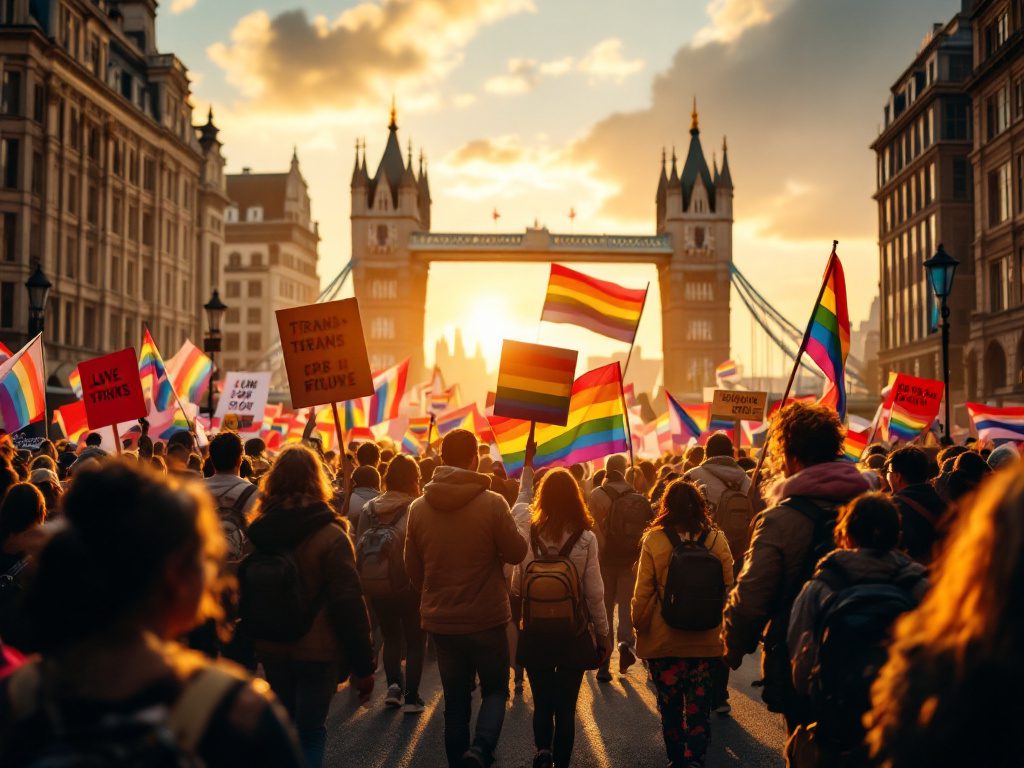Bold Fashion, Bolder Message: Pedro Pascal at the Heart of LGBTQ+ Advocacy
London’s red carpet glistened under a particularly fierce spotlight this week, but it wasn’t the super-powered allure of Marvel’s “Thunderbolts” that drew cameras—it was a simple white T-shirt emblazoned with three urgent words: “PROTECT THE DOLLS”. Actor Pedro Pascal, newly minted Marvel star, transformed a film premiere into a rallying point for transgender rights, galvanizing international attention just days after the UK Supreme Court issued a ruling defining womanhood strictly by biological sex.
Pascal’s sartorial statement was no accident. The shirt, designed by rising fashion creative Conner Ives, has surged in popularity since its debut—raising approximately $252,600 for Trans Lifeline, a peer support and crisis hotline for trans individuals in the U.S. Ives, who invested heavily to keep up with demand, describes the garment as a wearable act of solidarity. Its phrase, lovingly appropriated from Ballroom culture’s lexicon, refers to trans women as “dolls”: a coded word, heavy with both defiance and affection, within the LGBTQ+ community.
The stakes surrounding Pascal’s gesture cannot be overstated. Days before, the UK government welcomed the Supreme Court decision, claiming it brought “clarity and confidence” to service providers and effectively permitted the exclusion of trans women from single-sex spaces. For trans people and allies, this so-called clarity is cold comfort—a painful rollback of hard-won dignity at a time when anti-trans rhetoric is escalating across the Western world.
More Than a T-Shirt: The Power of Visibility and Allyship
Pascal’s willingness to publicly champion trans rights is neither sudden nor performative. His activism runs deep, rooted in personal history and lived solidarity. Pascal’s sister, Lux—a vibrant voice and actress in her own right—publicly came out as transgender in 2021. That family connection, underscored by visible gestures like his T-shirt at his 50th birthday celebration (attended by both Lux and legendary trans DJ Honey Dijon), heightens the sincerity of his advocacy. As The Last of Us star has said in interviews, “Loving my sister and supporting her in her fight for acceptance is the easiest thing I can do.”
Beyond that, Pascal stands within a growing constellation of celebrity allies. Singer Troye Sivan flashed the same shirt on stage at Coachella. Designer Haider Ackermann donned it during a major runway event. The untold story lies in the ripple effect: visibility at this level sends a message to young LGBTQ+ people everywhere, particularly at a time when rights feel under siege. GLAAD’s President Sarah Kate Ellis put it simply, “When public figures use their platform to support the most vulnerable, it saves lives.”
“This wasn’t just a T-shirt—it was a shield Pedro Pascal wore on behalf of those told they don’t belong. In moments like this, culture changes.”
Trans Lifeline, the organization benefitting from the shirt’s sales, reports a surge in calls whenever news breaks of anti-trans policies. Pascal’s gesture, in other words, isn’t lost in the noise. It resonates directly with those most threatened by discriminatory law, providing hope, validation, and—practically—resources through critical fundraising.
Dissent in Britain and Beyond: The Backlash to Backsliding
What pushed Pascal’s T-shirt—and its message—so squarely into the limelight was the UK’s controversial Supreme Court ruling, welcomed by Conservative policymakers but condemned by activists and legal scholars. The judgment, which restricts the legal definition of “woman” to those born biologically female, grants single-sex service providers in Britain the right to exclude trans women with impunity. For supporters, this is about “clarity.” For critics, it is institutionalized erasure.
Treating gender identity as a threat rather than a facet of human diversity, these policies inflame divisions that serve only the most reactionary interests. The American right, emboldened by such international developments, continues its own legislative campaign against LGBTQ+ rights, introducing hundreds of anti-trans bills at the state level last year alone. Conservative lawmakers frame these moves as matters of safety or tradition, but the consequences—social isolation, increased mental health crises, and, as documented by organizations such as Stonewall and the Human Rights Campaign, a spike in violence against trans individuals—are all too real.
History offers a cautionary tale. During the AIDS crisis of the 1980s, silence and stigma cost lives. Only when public figures like Princess Diana, Magic Johnson, and Freddie Mercury broke through the wall of ignorance did the world begin to treat those affected as fully human. Today, the battle for trans rights demands the same moral courage. Harvard sociologist Tey Meadow explains: “Visibility dismantles stigma, but only if it’s coupled with action. Charity is good, but policy shifts when cultural tides change.”
A closer look reveals how, in moments of backlash, symbols like Pascal’s shirt carry double weight: protective armor and protest flag in one. The message? You are worth defending. You are seen, even when the law tries to render you invisible.
A Call to Move from Symbols to Substantive Change
Pedro Pascal’s red-carpet moment is part of a broader reckoning—a refusal to let regressive policies dictate who belongs. Yet celebrities can only do so much. It’s up to audiences, voters, and legislators to turn symbolic gestures into legislative progress: supporting trans-led organizations, demanding accountability from lawmakers, and using collective voice to push back on exclusionary definitions that misunderstand both the science of gender and the lived reality of millions.
The political tide is not immutable. Changing it requires persistence, empathy, and boldness from ordinary citizens as well as stars. “Thunderbolts” may be a work of fantasy, but the fight for equality is fiercely, beautifully real.

